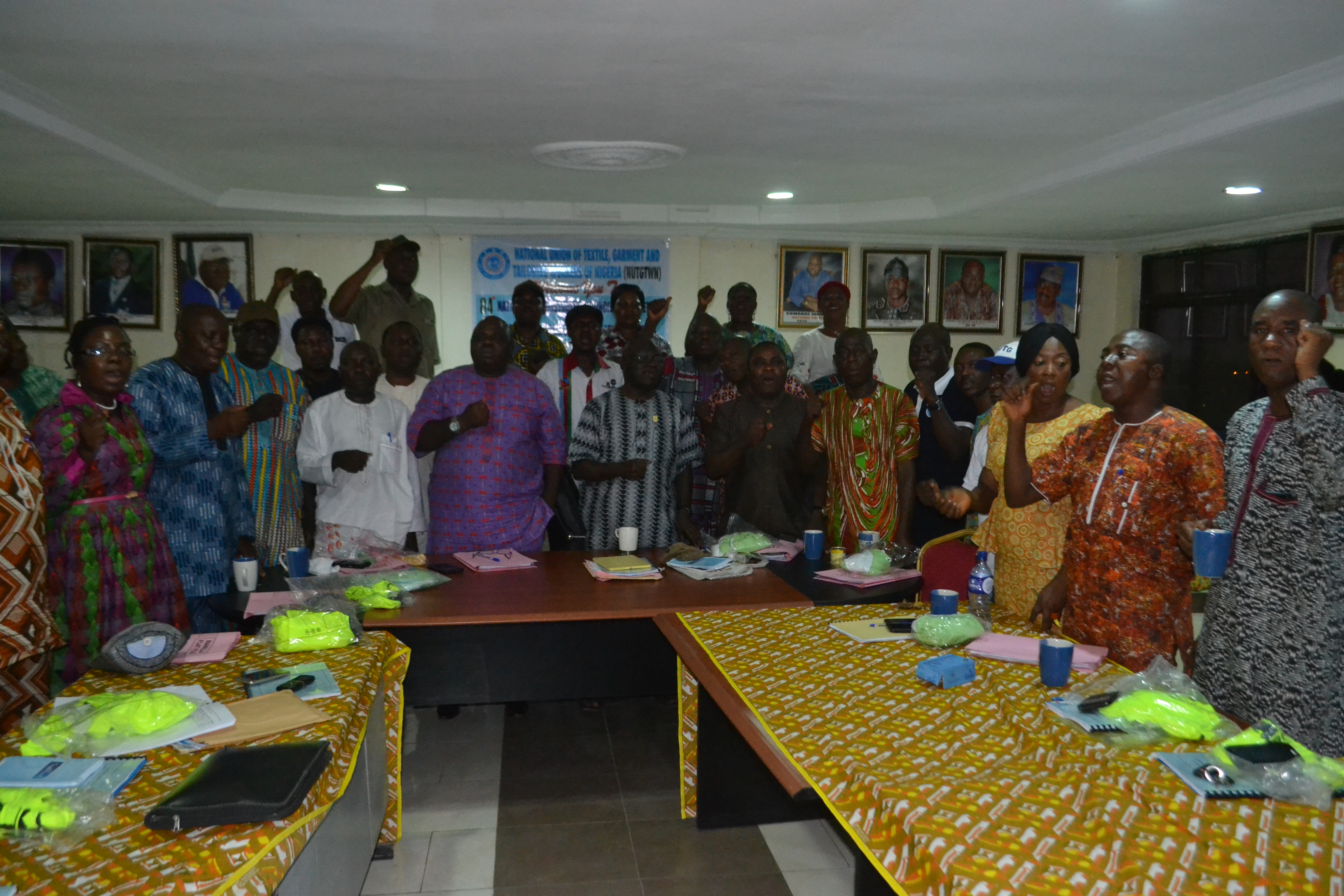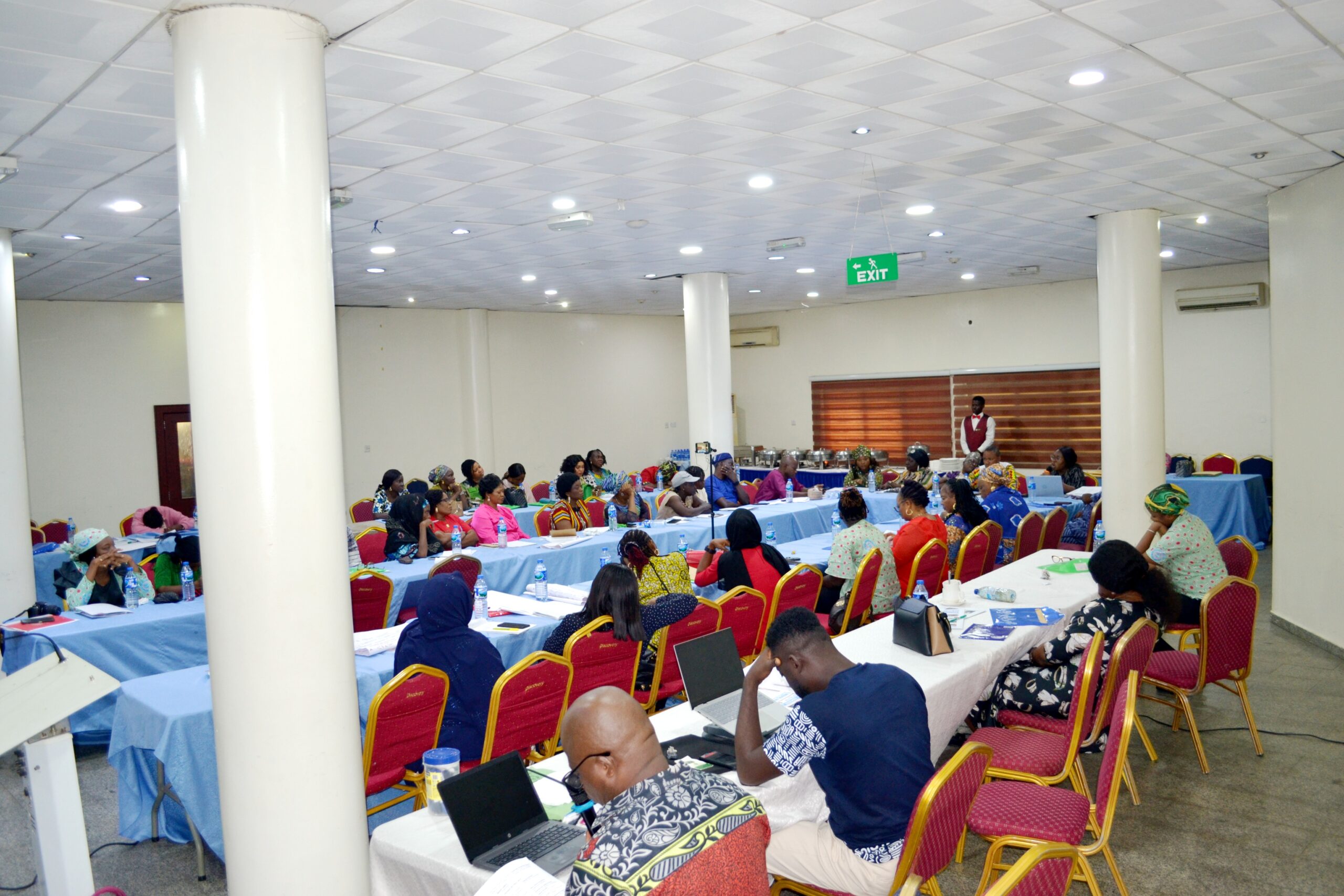 The National Executive Council (NEC) of the Nigeria Labour Congress after an exhaustive deliberation at its meeting held at Asaa Pyramid Hotel, Kaduna, on Wednesday, October 23, 2013 resolves as follows:
The National Executive Council (NEC) of the Nigeria Labour Congress after an exhaustive deliberation at its meeting held at Asaa Pyramid Hotel, Kaduna, on Wednesday, October 23, 2013 resolves as follows:
Casualisation
NEC-In-Session observes that there is a resurgence of casualisation of workers in the public and private sectors across the country. This unholy practice induces slave labour, prostitution, psychological trauma and the violation of the rights of these workers and does not in any way stimulate productivity .
What employers of Labour are trying to do is take undue advantage of hapless applicants or workers. Exploiting the weak defences of this category of people is not only morally reprehensible but defies logic. Even if the private sector, out of corporate greed, indulges in this unwholesome practice what justification does government have in doing so?
Some banks have gone to the extent of compelling their employees to meet a target of 6million a month and securing of bonds that make a mockery of plantation slave labour. Congress does not see how this terrible practice stimulates productivity.
NEC resolves that the Nigeria Labour Congress shall henceforth lead its affiliate unions against any employer identified to be engaged in these unwholesome practices by employing all known trade union actions until such employer retraces its steps.
 National Conference
National Conference
NEC-In-Session declares its support for the convening of a national conference so long as :
* it is geared towards a higher quality of life for the majority of Nigerians and addresses the politico-socio-economic problems bedeviling our country;
* the dialogue is for the purpose of strengthening the bonds that hold us together as well as strengthen our sovereignty ;
* enhance productivity and improve the security situation in the country.
A conference of this nature should be deep, practical, convincing and be capable of changing the destiny of the country for the better.
NEC resolves that Congress should participate actively in the conference and the process leading to it.
Asuu Strike
NEC-In-Session expresses its deep concern for the near total collapse of the Education Sector. It is a sad commentary that government has allowed the strike by ASUU to drag on for so long with incalculable consequences. Rather than resolve these issues, government is busy sponsoring protest groups against ASUU.
NEC cautions that if government persists with this line of action, it will mobilize its members to stage counter protests across the country. It has the will and the capacity and it advises that government should not test that will.
In spite of government’s underhand tactics, NEC resolves to step up its intervention initiative by reaching out to the government at the highest level as well as dialogue with ASUU to achieve the needed breakthrough and save the students further trauma.
Congress wants a comprehensive approach to the crises in the education sector as a strategy for conflict resolution. This response-strategy has become necessary in the light pf the fact that virtually all the unions in the sector are on the verge of a strike action , most , if not all are induced by government’s breach of agreements.
Crude Oil Theft
NEC holds the view that it is a national embarrassment that in spite of the assurances given by government and the deployment of security armada in the Niger Delta region, crude oil theft is on the increase. The immediate effects are drastic reductions in production and oil receipts making it difficult for government to discharge its duties to the citizenry.
NEC maintains the view that top government officials, military officers, businessmen, politicians with their local and foreign collaborators are responsible for the crude oil theft.
It warns that the continuance of this iniquity holds dire consequences for the country. Accordingly and in spite of its vested interests, government must be seen to commit itself to stemming this ignominious act. This process should include the harnessing of the crude refining process by local individuals instead of the futile boot tactics by the Task Force.
Economy
NEC states that even when the official performance indices looked upwardly, there was little to cheer about in terms of job-retention or growth. The indices at the moment are negative and gloomy making it difficult for government to meet its obligations to the states. Oil receipts are low and reserve funds by whatever name are called, have dipped .
In spite of relative effort in the agricultural sector, government has not sufficiently grown alternative sources of income to shore up a sliding economy.
Accordingly, NEC demands a return to effective planning. The private sector, which under the present neo- liberal development strategy, is expected to drive the process of economic growth and re- engineering, is weak, choosy, focused on short-term profits and overwhelmed by infrastructural inadequacy.
Government therefore needs to re-examine its hasty surrender of the economy to neo- liberal forces as expectations of economic expansion, job-led growth, improved operating environment, etc have not been met.
Instead, we have had serial and endless instances of economic overheat , turmoil, conflicts and a frightening rate of unemployment . Congress, by the day, is convinced that a return to national planning and the development of sectoral blueprints, in addition to to the creation of an enabling environment appear to be the solution to jobless growth. A resort to this, doesn’t not require a total abandonment of market reforms.
Cost of Governance
NEC-in-Session reflects on the excessive cost of governance and finds it unacceptable. Salaries and perquisites of top political office holders continue to be shrouded in secrecy. A recent example of unacceptable waste in governance is the housing project for principal officers of the National Assembly. The houses on which 3 billion has been spent are now rejected by the principal officers.
New houses are to be developed and the rejected ones are to be converted to guest houses. No matter what has gone wrong, if there is to be meaningful development in our country, we must find a way to cut down drastically on the cost of governance and waste.
Corruption
NEC-In-Session observes that in spite of frequent criticism, government is yet to seriously address the issue of corruption. It holds the view that one of the reasons why the economy is on the downward slide is the levity with which government continues to deal with corruption. For instance, most of the high profile cases involving corruption, especially the fuel subsidy scams have led to nowhere as the judicial process is being frustrated in spite of overwhelming evidence against the culprits.
NEC finds it incongruous that government would want to protect these criminals because of party affinity , yet party affinity has not put food on the table of the ordinary Nigerian. Accordingly, it calls on the government to diligently prosecute these big thieves. Nobody should be above the law even if they funded the election of everyone in the party.
NEC-In-Session condemns in strong terms the scandalous purchase of bullet proof cars by the Minister of Aviation, Mrs Stella Oduah. Neither the process nor the price nor even the reason for the purchase satisfies transparency nor good conscience, especially at this point in time when government is increasingly unable to meet its basic obligations to the citizenry. The Minister should therefore be called to account. Accordingly, NEC calls for the immediate probe of the Minister.
Power Holding Company of Nigeria
NEC-In-Session observes that the handing over of power plants to their new owners by government was done without first sorting out the labour issues inherent in the transaction and therefore constitutes a contravention of an agreement.
For instance government is yet to deal with the issues of severance pay, just as it has not dealt with appropriate pension liabilities. Similarly, it is yet to give workers the opportunity to buy ten per cent equity in the new companies as enshrined in the NCP Act. The regularisation of the casual staff to enable them access terminal benefits still remains an issue. The present pension liabilities as calculated by government fail to take into consideration the period from June 2012 to October 2013.
NEC advises that for government’s power reform programme to be on course, it needs to deal fairly and transparently with workers. This is necessary to avoid an unpleasant consequence.
Anambra Elections
NEC-in-Session states that it is watching with keen interest the electioneering campaigns in Anambra State preparatory to the gubernatorial election. In spite of the imperfections that greeted some of the party primaries, the campaigns have been robust and should be sustained
Congress urges that this momentum should be maintained right up to the election proper and every candidate should be given equal opportunity and access to the media or appropriate institutions in the state.
Above all, the rights of voters to freely express their civic duty should be respected. Their votes must count, for democracy and country.
Insecurity
NEC-in-Session notes that while the declaration of state of emergency in Adamawa, Borno and Yobe States yielded initial successes and ushered in relative calm in the polity for which government received commendation from the citizenry, the same cannot be said of the moment. Boko Haram insurgents seem to have slipped behind military and security forces to unleash mayhem on civilian populations, especially students who have been massacred in hundreds. Even our troops and young militia groups have suffered unacceptable lossess.
Another challenge is the nervousness of our security forces created either by battle fatigue or the unwholesome methods of Boko Haram elements. The recent killing of the Apo Nine is one of the manifestations of this.
While government deserves commendation for creating a new army division dedicated to fighting terrorism in the North Eastern part of the country, government must build on its peace initiative by adequately equipping the military and intelligence forces as well as strengthen its collaboration with relevant countries.
New Automotive Policy
NEC notes the new automotive policy approved by the Federal Executive Council. The new policy seeks to attract auto makers to establish plants in Nigeria . Three automotive clusters are to be established in the country in Lagos-Ogun, Kaduna-Kano, and Anambra-Enugu States. Toyota and Renault-Nissan and other major auto-makers are said to have signaled interest.
While NEC commends the policy, it wants lessons to be learnt from the auto-assembly experience of the ’70s and calls for the revival of petrochemical and iron and steel plants to provide the necessary bedrock for the industrialization of the country and guarantee domestic value addition in the auto industry .
Part of the thrust of the new auto-mobile policy is the phasing out of used cars known as tokunbo cars. Congress wants to stress that the phasing out process should be done in such a way that it does not impose on Nigerians unnecessary hardship. If made-in-Nigeria cars are on the market in sufficient quantities, of comparable quality to imported vehicles, and if Nigerians are empowered sufficiently to purchase them, the the demand for the tokunbo car will automatically drop.
FMBN
NEC-in-Session after an elaborate deliberation resolves to lift the suspension it placed on contributions to the National Housing Fund and accordingly directs its members to resume contributions and remittance to the National Housing Fund.
The decision is made in appreciation of positive changes in the bank led by its new Managing Director, Mr Gimba Ya’u Kumo. These changes include improved housing delivery to workers across the country and the readiness of the bank to collaborate with the Nigeria Labour Congress to provide more affordable, livable and durable houses to workers; restructuring of the bank to accommodate interest of major stakeholders such as the Nigeria Labour Congress and the Trade Union Congress; amendment of the Act establishing the bank to increase its capital base as well as remove restrictions that make access to houses by workers difficult.
Abdulwahed I. Omar Chris Uyot
President Ag. General Secretary








